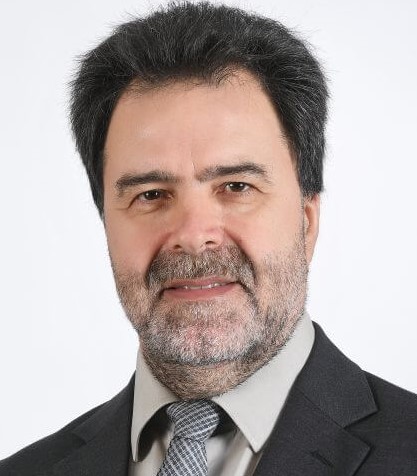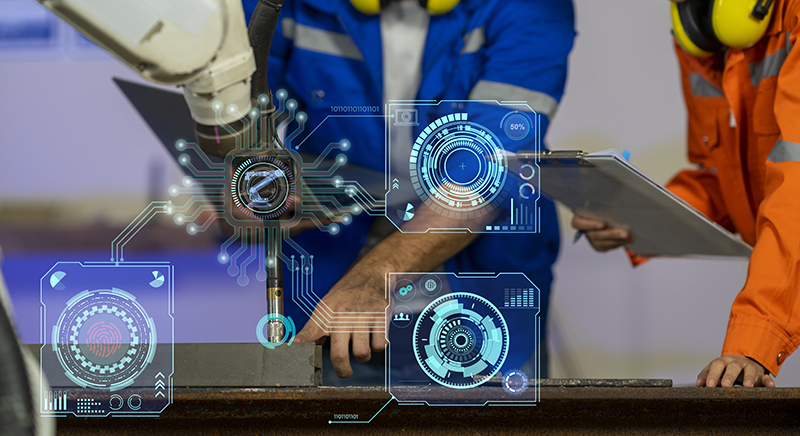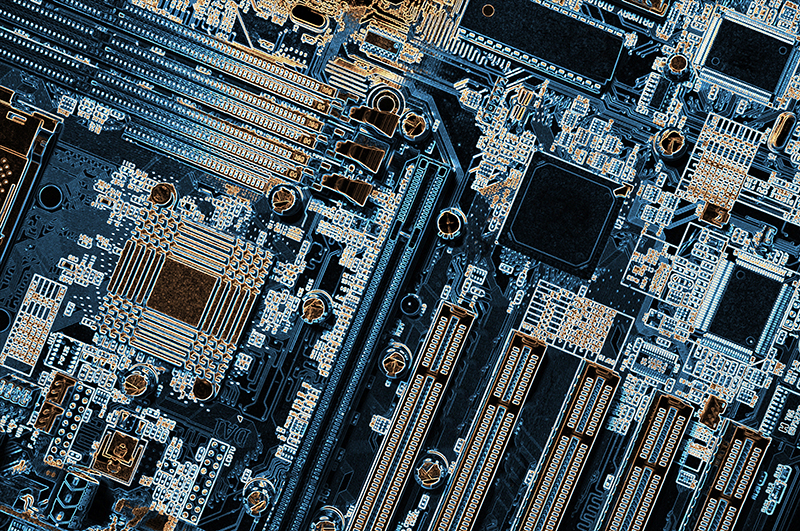Exploring the future of AI circuits and systems
Cutting-edge technologies to support artificial intelligence take center stage as Khalifa University hosts the first IEEE International Conference on AI Circuits and Systems held in the Middle East.

Khalifa University is set to host the 6th annual IEEE International Conference on Artificial Intelligence Circuits and Systems (AICAS) from April 22-25. Organized by the IEEE Circuits and Systems Society, the conference aims to promote state-of-the-art research, innovation, and developments in the expanding field of artificial intelligence (AI).
In today’s world, AI permeates almost every sector, from healthcare to security to energy. Novel application algorithms continue to emerge and it’s essential that the underlying computing infrastructure that makes AI possible—from the circuit level to the system level—evolves to match, says conference chair Thanos Stouraitis, a professor at Khalifa University’s Electrical and Computer Engineering Department. “This is a substrate, basically, for the success of AI algorithms,” he explains.
The conference will bring together scholars, technology researchers, and industry experts from around the world to share experiences and research findings, and discuss the future of AI circuits and systems technologies. They will explore cutting-edge developments in 20 different research areas, including advanced design automation for AI systems; emerging applications for healthcare and smart factories; neural network design; machine learning for future wireless communications; AI for energy conservation; AI for education; and autonomous unmanned vehicles and drones.
One focus of the conference will be on advances in coprocessors, chips tailored specifically to meet AI demands. “These aim to achieve very high degrees of accuracy at high speeds, be it for image processing or robotics applications for autonomous driving, for example,” says Stouraitis.
“A major problem with any kind of computing is the time that it takes for the data to come inside the processor to be processed.”
Thanos Stouraitis
Another key area of discussion will be optimizing computing performance through efficient-use computer memory , Stouraitis adds. “A major problem with any kind of computing is the time that it takes for the data to come inside the processor to be processed,” he explains. “You have the CPU, the central processing unit, and usually memory around it. The data communicates with the CPU, and that communication takes much, much longer than if the data were residing inside the chip.” Reducing that travel time results in greater processing speeds and reduced power needs, he says. “Power consumption is a big issue with all these data-intensive operations. Each Chat GPT query, for example, requires almost one watt-hour of energy. You can imagine the energy cost with billions of them being performed every day.”

Alongside the research presentations, the conference will host several live demonstrations of new technologies, including one by a KU team showcasing a small, fast-processing device that uses little power.
Organizers also anticipate keen interest in the AICAS Grand Challenge 2024. Various research groups around the world have been competing to solve a specific problem related to software and hardware co-optimisation for general large language model inference on CPU processors and will present their results during the meeting. Winners will receive an award at the conference.
Khalifa University’s selection as the conference host follows a competitive bidding process, with criteria including the scientific stature of the organizing team, including the general chair and the programme and committee chairs, and a demonstrated ability to organize conferences. The university’s past experience organizing conferences on electronic circuits and systems helped to make it a strong contender, Stouraitis says. “Khalifa University has lots of experience with the scientific themes of this conference; and with organizing events that cater to IEEE Circuits and Systems Society’s research interests,” he says, adding that Abu Dhabi also has a lot to offer conference-goers. “It’s a very safe and welcoming city to explore and enjoy.”




